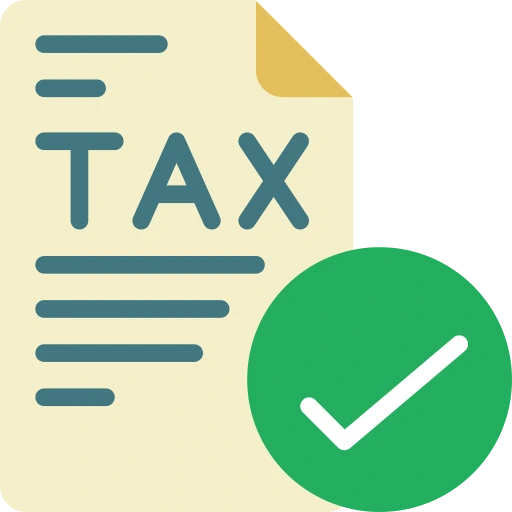Guidelines For Education Loans
Education is undeniably vital for personal growth and societal progress. It equips individuals with knowledge, skills, and opportunities crucial for success in various spheres of life. However, the escalating costs of education often pose significant financial barriers for students aspiring to pursue higher studies. In such circumstances, opting for an education loan emerges as a pragmatic solution.
Education loans provide students with the necessary financial assistance to pursue their desired courses without being constrained by immediate financial limitations. This allows individuals to invest in their education and prospects, ensuring they have access to quality learning experiences and opportunities for personal and professional advancement. Whether it's for undergraduate, postgraduate, or specialized courses, education loans play a pivotal role in enabling students to pursue their academic aspirations without undue financial stress, thereby fostering a more equitable and accessible education system.
Different Types Of Education Loans
Education loans come in various forms to cater to the diverse needs and aspirations of students. Let's explore these different types and their distinctive features:
Location
Domestic Education Loan: Designed for students pursuing education within India, this loan requires applicants to be admitted to Indian educational institutions and meet lender criteria for approval.
Overseas Education Loan: This type of loan enables students to fulfil their aspirations of studying abroad. It covers expenses like airfare, accommodation, and tuition fees, provided applicants meet the eligibility criteria.
Academic
Undergraduate Loans: Aimed at providing financial aid to students completing their bachelor's degrees, typically spanning 3 to 4 years under various specializations. An undergraduate degree lays the foundation for securing employment and beginning one's career.
Postgraduate Loans: Tailored for individuals pursuing advanced education, usually a 2-year course in India. A postgraduate degree equips students with specialized knowledge in their field of interest, enhancing career prospects and opportunities for advancement.
Professional Development
Career Development Loans: Targeting professionals seeking to enhance their skills and qualifications through additional training or education. These loans support individuals in pausing their careers to pursue professional courses and training, ultimately improving their employment prospects and advancing their careers.
Collateral Options
Loan Against Property, Deposits, and Securities: Borrowers can pledge immovable assets such as land, residential properties, or various financial instruments like fixed deposits, gold deposits, bonds, and equity shares as collateral to secure financing for their education.
Third-Party Guarantee: Alternatively, students can obtain an education loan with the guarantee of a third party, typically an employee of the bank or a home bank, thereby enhancing their chances of loan approval.
Benefits Of Education Loans
- Loan amounts up to Rs.1 crore for international students and up to Rs.50 lakh for domestic students.
- 100% financing is available under certain conditions.
- Covers additional expenses like student exchange travel costs and laptops.
- Preferential forex rates are possible for international disbursements.
- Parents are required as joint borrowers for the education loan.
- Repayment tenure is extendable up to 15 years.
- Moratorium period of 6 months to 1 year post-completion of the course.
- Tax benefits are available for up to 8 years on loan interest payments.
Expenses Covered under Education Loan:
- Fees for educational institutes.
- Examination/library/laboratory fees.
- Travel expenses for studying abroad.
- Insurance premiums for student borrowers (if applicable).
- Caution deposit, building fund/refundable deposit (up to 10% of total loan).
- Purchase of books/equipment/instruments/uniforms (up to 20% of total loan).
- Computer purchase at a reasonable cost (up to 20% of total loan).
- Other course-related expenses like study tours, projects, thesis, etc. (up to 20% of total loan).
- Scholarships, fee waivers, etc., are considered while computing the loan required.
Courses Covered under Education Loan:
- Graduation and post-graduation courses (professional/technical/diploma) conducted by approved universities or colleges under UGC, IMC, AICTE, government, AIBMS or CMR.
- Regular degree or diploma courses from autonomous institutions like IIM, IIT, IISc, XLRI, NIFT, NID, ICWA, CA, CFA, etc.
- Regular degree or diploma courses like pilot training, aeronautical, shipping, etc., are approved by relevant regulatory authorities.
- Job-oriented courses (professional/technical) for graduation, post-graduation, or diploma such as MBA/MCA/MS, courses by CIMA - London or CPA - USA.
- Loans for skill development.
Education Loan Eligibility:
- Eligible programs include approved undergraduate and postgraduate programs, PhDs, diploma courses lasting six months or longer, job-oriented courses, and technical/professional courses.
- Applicants must be enrolled or seeking admission in recognized institutions, including government institutions, professional institutions, and international colleges/universities.
- For undergraduate courses, applicants should have completed 10+2 (12th standard), and for postgraduate courses, a degree is required.
Required Documents:
- KYC documents
- Academic transcripts of 10th, 12th, graduation, and entrance exams
- Admission letter from the institution
- The fee structure provided by the institution
- Co-applicants KYC and income proof may be required in certain cases.
- Additional documentation might be requested based on individual circumstances.
Tax Benefits for Education Loans:
Income tax deduction under Section 80E is available on the interest portion of your education loan repayments. Principal repayments do not qualify for this deduction. There's no upper limit on the amount eligible for tax deduction on interest repayment. However, you need a certificate from the bank as proof.
This benefit can be claimed for up to eight years from the commencement of loan repayment or until the interest is fully repaid, whichever is earlier.
Education Loan EMI Estimator:
The education loan EMI estimator is a handy tool to compute your monthly repayment amount to the lender. Simply input the Principal amount (P), Time duration (N), and Rate of interest (R) to determine your EMI, helping you plan your finances effectively.
How to Apply for an Educational Loan:
Choose Your Bank: Select a bank offering educational loan schemes that suit your needs.
Online Application:
- Step 1: Visit the bank's website and select an educational loan scheme.
- Step 2: Download the application form or click 'Apply Now'.
- Step 3: Fill out the form, attach the required documents, and submit.
- Step 4: The Bank verifies documents, and evaluates your course, and collateral.
- Step 5: Upon approval, the loan amount is disbursed.
Offline Application:
- Visit the bank branch.
- Fill out the application form, and submit it with documents.
- The bank verifies and processes the loan.
Study Loan Repayment Procedure:
Grace Period: Some lenders offer a 6-month to 1-year grace period post-course completion.
Commencement of Repayment: Begin repaying EMIs upon securing a job within the grace period.
EMI Calculation: Bank officials suggest EMI based on your monthly income. Repayment Negotiation: Negotiate EMI amount if needed.
Maximum Repayment Tenure: Generally, the maximum repayment tenure allowed is eight years
























